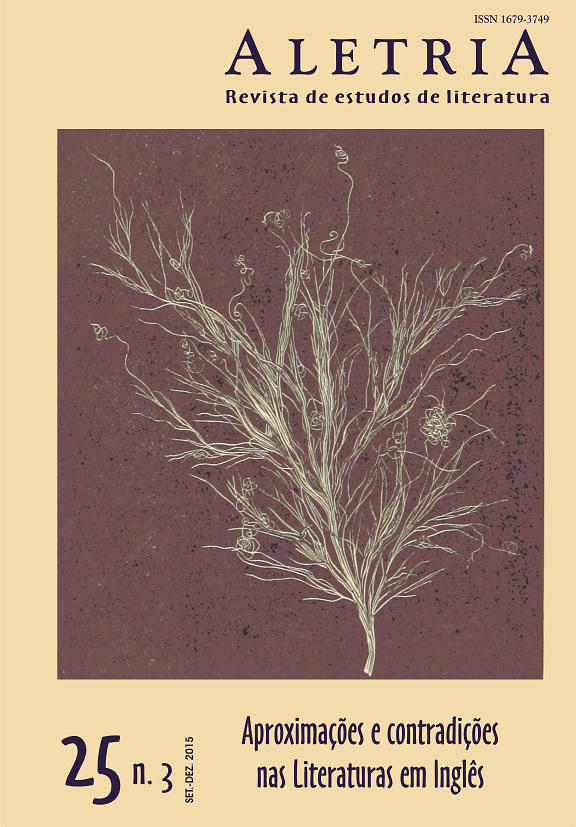In the Leal Conselheiro of D. Duarte: Advice about Translation or “Tirar em Linguagem” Latin Language in Portuguese Prose in the 15th Century
DOI:
https://doi.org/10.17851/2317-2096.25.3.225-242Keywords:
translation, Portugal, fifteenth centuryAbstract
We propose in this study to analyze a few translated books of the library of king D. Duarte and the advice that the monarch addresses to the “trasladadores” in Chapter XCIX of the “Leal Conselheiro”. In reference to translations, the arguments are divided into two main directions: the shortcomings of the Portuguese vernacular compared to the Latin and the ethical and rhetorical needs justifying translations.
Downloads
References
ALFONSO DE CARTAGENA. Retórica. Apud MENENDEZ, Marcelino Pelayo. Historia de ideas estéticas en España. Santander: Consejo Superior de Investigaciones Científicas, 1940. v. I, Apêndice II, p. 489-494.
BATAILLON, Marcel. Erasmo y Espana. Tradução espanhola de Antonio Alatorre. México: Fondo de Cultura Económica, 1996.
CICERO. Marco Tulio. O orador (De oratore). Tradução de Ricardo Scatolin. In: SCATOLIN, Ricardo. A invenção no Do orador de Cícero: um estudo à luz de Ad Familiares I, 9, 23. 2009. Tese (Doutorado) – Programa de Pós-Graduação da Faculdade de Filosofia Letras e Ciências Humanas da USP, São Paulo, 2009.
DE SANCTIS. Storia dela literatura italiana. Apud Joseph Piel. Introdução. In: PEDRO DE COIMBRA . Livro dos ofícios, nota 3, p. X.
D. DUARTE. Leal conselheiro. Ed. de Joseph Piel. Lisboa: Livraria Bertrand, 1942.
DUARTE DE RESENDE. Carta sua a Garcia de Resende. In: Marco tulio cicerom de Amicicia paradoxas e sonho de Scipião..., Lisboa: Impresso por Germão de Galharde, 1522. (Exemplar da Biblioteca Nacional de Madrid).
GARCIA DE RESENDE. Cancioneiro geral. Edição de Aida Fernanda Dias. Lisboa: IN-CM, 1990.
KRAYE, Jill et alii. Introducción al humanismo renacentista. Ed. espanhola de Carlos Claveria, traduzido por Lluís Cabré. Cambridge: Cambridge University Press, 1998.
MURPHY, James. La retorica nel Medioevo: una storia delle teorie retoriche da s. Agostinho al Rinascimento. Napoli: Liguori Editore, 1983.
OSÓRIO, Jorge Alves. Duarte de Resende, tradutor do “De Amicitia” de Cícero (1531). In: Humanitas. Coimbra, XLVII, 1995.
PEDRO DE COIMBRA. Tratado da virtuosa benfeitoria. Dedicatória. In: Obras dos príncipes de Avis. Introdução e revisão de M. Lopes de Almeida. Porto: Lello, 1981.
PEDRO DE COIMBRA. Livro dos Ofícios. Edição de Joseph Piel. Coimbra: Por ordem da Universidade, 1948.
PIEL, Joseph. Introdução. In: PEDRO DE COIMBRA. Livro dos Ofícios. Coimbra: Por ordem da Universidade, 1948.
PIMPÃO, Álvaro da Costa. História da literatura portuguesa: Idade Média. Coimbra: Atlântida, 1959.
PIMPÃO, Álvaro da Costa. La introducción del humanismo en Portugal. In: Escritos Diversos. Coimbra: Por Ordem da Universidade, 1972.
SANTILLANA, Marques de. Obras. Edição ao cuidado de Auguto Cortina. Madrid: Espasa-Calpe, 1956.
SARAIVA. Novíssimo dicionário latino português. Rio de Janeiro: Garnier, 2000.
Downloads
Additional Files
Published
Issue
Section
License
Copyright (c) 2016 Flávio Antônio Fernandes Reis (Autor)

This work is licensed under a Creative Commons Attribution 4.0 International License.
Authors who publish with this journal agree to the following terms:Authors retain copyright and grant the journal right of first publication with the work simultaneously licensed under a Creative Commons Attribution Non-Commercial No Derivatives License that allows others to share the work with an acknowledgement of the work's authorship and initial publication in this journal.Authors are able to enter into separate, additional contractual arrangements for the non-exclusive distribution of the journal's published version of the work (e.g., post it to an institutional repository or publish it in a book), with an acknowledgement of its initial publication in this journal.Authors are permitted and encouraged to post their work online (e.g., in institutional repositories or on their website) prior to and during the submission process, as it can lead to productive exchanges, as well as earlier and greater citation of published work (See The Effect of Open Access).









